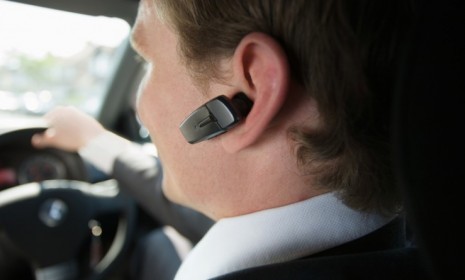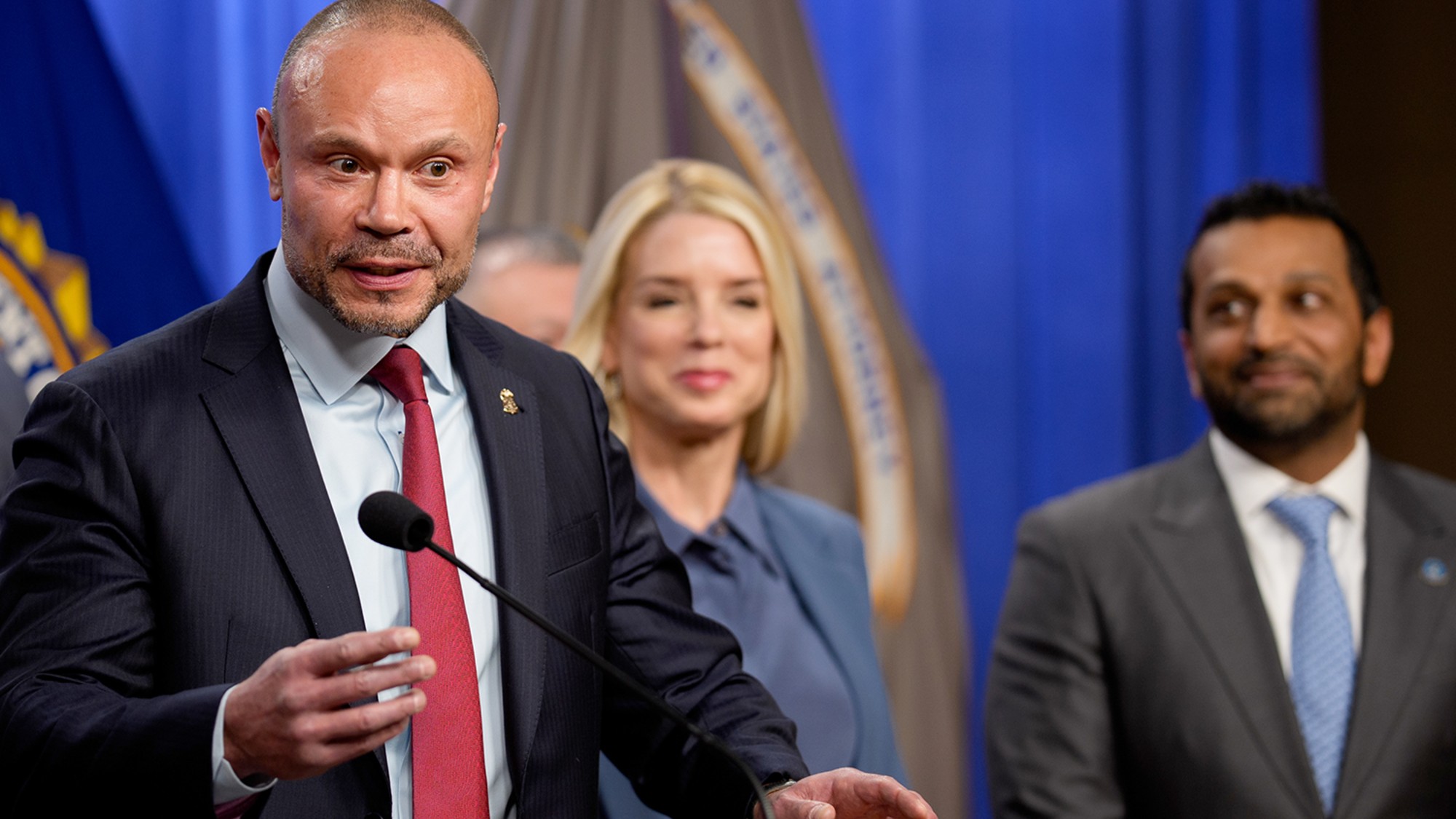Should America ban cell phones for drivers?
An influentional national advisory board wants all 50 states to prohibit cell phone use by drivers — even with hands-free headsets

Keep your eyes on the road and your phone in your pocket. That's the gist of the new guidelines proposed Tuesday by the federal National Transportation Safety Board. The NTSB wants states to ban drivers from any non-emergency use of cell phones and other electronic devices that aren't built into their automobile. "We're not here to win a popularity contest," said NTSB chairwoman Deborah Hersman. "No email, no text, no update, no call is worth a human life." Here's what you should know:
How dangerous is "distracted driving"?
Very. Commercial drivers are 163 times more likely to have a serious crash if they are texting, emailing, or accessing the web, according to a Virginia Tech study. Last year, 1 in 100 U.S. drivers was texting, emailing, surfing the web, or otherwise handling a portable device at any given moment. That's a 50 percent jump from 2009.
The Week
Escape your echo chamber. Get the facts behind the news, plus analysis from multiple perspectives.

Sign up for The Week's Free Newsletters
From our morning news briefing to a weekly Good News Newsletter, get the best of The Week delivered directly to your inbox.
From our morning news briefing to a weekly Good News Newsletter, get the best of The Week delivered directly to your inbox.
And it's deadly?
Yes. Distracted-driving fatalities rose 28 percent between 2005 and 2008, according to a University of North Texas study. At least 3,092 people died in wrecks involving distracted drivers in 2010, according to the NHTSA. Of course, distracted driving has been a problem "since the Model T," admits Hersman, but the rise of smartphones and other portable gadgets has led to much more frequent, engaging, and deadly distractions. "This is becoming the new DUI," says fellow NTSB member Robert Sumwalt. "It's becoming epidemic."
Can the NTSB enforce this ban?
No. It isn't even recommending any new federal action on distracted driving. Instead, the NTSB wants all 50 states and Washington, D.C., to individually ban all use of cell phones and other portable electronic devices, even with hands-free earpieces. The NTSB's recommendations do carry weight with federal regulators and state and federal lawmakers. And in that regard, this report is "a game-changer," says Jonathan Adkins at the Governors Highway Safety Association. "States aren't ready to support a total ban yet, but this may start the discussion."
A free daily email with the biggest news stories of the day – and the best features from TheWeek.com
Don't some states already ban distracted driving?
Yes, in some form. Texting while driving is banned in 35 states, and 30 states ban all cell phone use for beginning drivers. Nine states ban all hand-held cell phone use while driving. But no states currently ban the use of hands-free phones while driving.
Why is the NTSB speaking up now?
The tough new recommendations stemmed from the board's review of an Aug. 5, 2010, pileup near Gray Summit, Mo., in which a 19-year-old crashed his pickup into a tractor trailer at 55 mph, killing himself and causing a chain reaction that left another person dead and 38 people injured. The driver had sent six text messages and received five in the 11 minutes prior to the crash, including one "right before impact," the NTSB found. Missouri already had a law prohibiting texting-while-driving under age 21, the board noted, but enforcement was lax.
Should states follow the NTSB's advice?
The NTSB may be slightly overstating the problem, says Marguerite Reardon at CNET. Besides, will we also ban "those ladies putting on makeup, people reading, or eating messy foods while trying to navigate our roadways?" asks Stacey Higginbotham at GigaOm. I'm in favor of some "reasonable rules" that let us use some gadgets and hands-free devices, but what the NTSB proposes is unworkable. Hardly, law professor Carl Tobias tells The Christian Science Monitor. It's workable if states do the right thing: "It's amazing to me that despite the growing evidence to the contrary, people continue to think this is not dangerous."
Sources: AP, Christian Science Monitor, CNET News, CNN, GigaOm, High River Times, NHTSA (pdf), NTSB, Reuters, Washington Post
-
 Pipe bombs: The end of a conspiracy theory?
Pipe bombs: The end of a conspiracy theory?Feature Despite Bongino and Bondi’s attempt at truth-telling, the MAGAverse is still convinced the Deep State is responsible
-
 The robot revolution
The robot revolutionFeature Advances in tech and AI are producing android machine workers. What will that mean for humans?
-
 Health: Will Kennedy dismantle U.S. immunization policy?
Health: Will Kennedy dismantle U.S. immunization policy?Feature ‘America’s vaccine playbook is being rewritten by people who don’t believe in them’